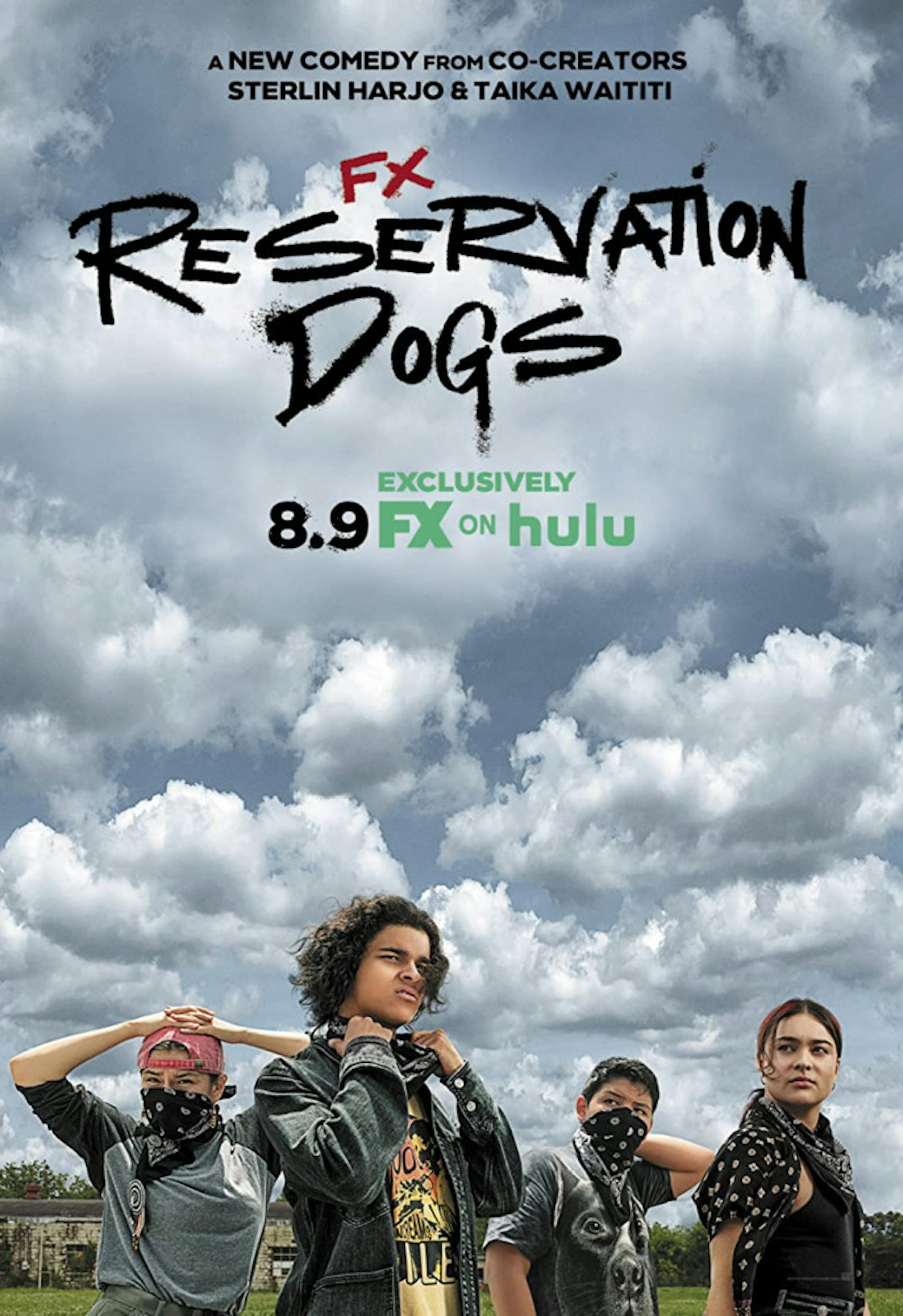The name Taika Waititi on any project makes it worth watching – the Māori actor/director/producer extraordinaire seems able to add his certain flair to anything and make it work, whether that be a satirical yet moving look at a brainwashed Hitler Youth in “Jojo Rabbit” (2019) or a vampire mockumentary in “What We Do in the Shadows” (2014). More recently, he has lent his star power as an executive producer and writer for “Reservation Dogs” (2021–), his second team-up with FX on Hulu after the success of his “What We Do in the Shadows” spin-off series.
“Reservation Dogs” chronicles the lives of four Indigenous teenagers working their way toward leaving their rural Oklahoma reservation for the elusive dreamland of California. To save up the necessary funds, they steal a chip truck in a frantic heist and sell illness-causing meat pies among other absurdities. It’s a simple premise, but the show is less concerned with the mechanics of its plot and is able to work so seamlessly because of its clever writing, strong ensemble, and honest approachability.
The eponymous Reservation Dogs, the nickname for the group, form one of the best and most honest ensembles to hit the small screen in a while, but the show allots an episode to each of them: Bear (D’Pharaoh Woon-A-Tai) deals with his absent father, Cheese (Lane Factor) goes on a ride along with Officer Big (Zahn McClarnon), Willie Jack (Paulina Alexis) goes hunting and Elora (Devery Jacobs) takes her drivers test.
Each has individual issues that need sorting out, but the show is more interested in its sense of place. The characters, yearning for the opportunities of California, seem to think of the reservation as some sort of inescapable black hole that swallowed up the late fifth member of the group. The show seems intent on proving them wrong.
The individual episodes may make some viewers want to compare the strength of the show’sformidable yetlesser-known main actors, but to do so would be unjust to the nature of the show. This ensemble is too impressive to break apart; they speak and interact with each other with almost unbelievably natural chemistry and ease. The show fundamentally puts the group’s needs over individual ones — in one episode, Elora confronts Bear about his liberal spending policies that keep the group from going to California sooner."Reservation Dogs" very delicately balances the needs of its individual characters with those of its ensemble, thanks to the commitment of its lead actors to the cohesiveness of the whole production.
Clearly a show that balances content well, “Reservation Dogs” deals with some rather heavy topics without weighing down the show. Its comedy is so light and fresh that the more sensitive topics can’t possibly overwhelm the plot. For example, the fourth episode, “What About Your Dad,” juxtaposes Bear’s feeling of abandonment with a catchy music video about greasy fry bread and a phallic microphone medallion. Most of the comedy wouldn't sound that amusing upon description, but it works seamlessly with the easygoing structure of the show.
The writers also aren’t afraid to dabble in the supernatural, which helps bring that air of lightness into the show while also making a point about problematic representations of Native Americans in other media. Bear keeps seeing a spirit named William Knifeman (Dallas Goldtooth) who plays on Native American stereotypes — when we meet him for the first time, the show’s aspect ratio and style shifts to mimic that of an old-school Western movie. His arrival on majestic horseback contrasts with his actual character, who frequently speaks of how the coldness of the spirit world affects the hardness of his nipples. His presence in the show uses comedy to deal with a legacy of harmful representation and adds a new layer that prevents the show from getting stale.
“Reservation Dogs'' is thus an outstanding show in terms of entertainment, but it’s also somewhat revolutionary. It’s the first TV show entirely written and directed by Indigenous creatives, which fosters an undeniable honesty and realness embedded in the show’s essence. For some shows, representation is only tokenism, a prized trophy to show off and brag about. This is not the case for “Reservation Dogs,” where representation is at the core. It’s not a show about white people with Indigenous characters in it, it’s about Indigenous characters in an explicitly Indigenous world. The show has effortless and genuine representation worked into the premise of the show without having the self-important preachiness that some other shows (“Sex Education” (2019–) comes to mind) take on. It’s unfortunate that we seldom get these types of stories, and “Reservation Dogs” sets an impressive example for a more inclusive future of television.
There isn’t much bad to say about “Reservation Dogs” — it’s funny and important without being obnoxious or showy. At only eight half-hour episodes, it’s a great watch for students bogged down with early-school-year work. It's hard to call anything a perfect show, but “Reservation Dogs” is certainly one of the best of this year.






